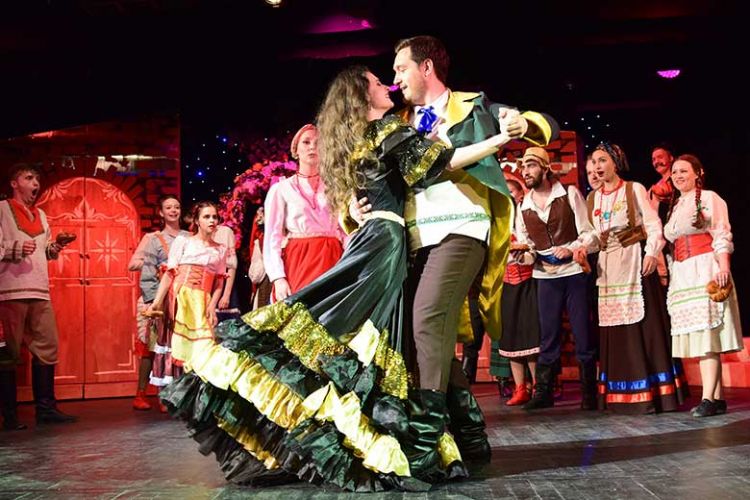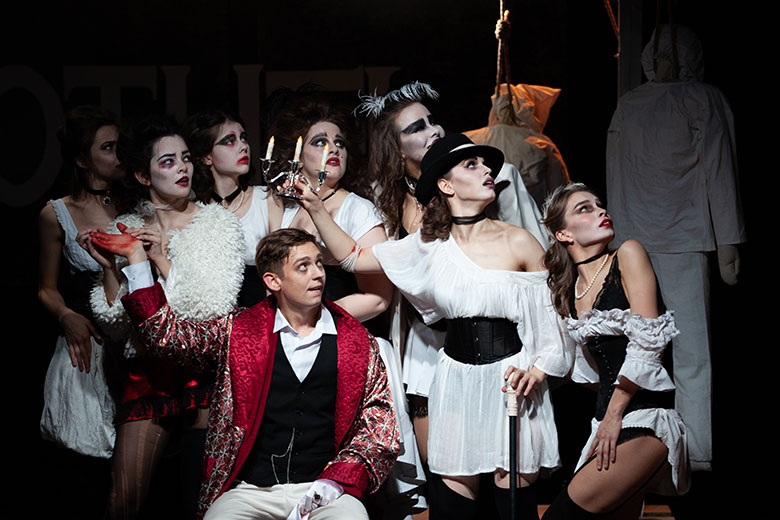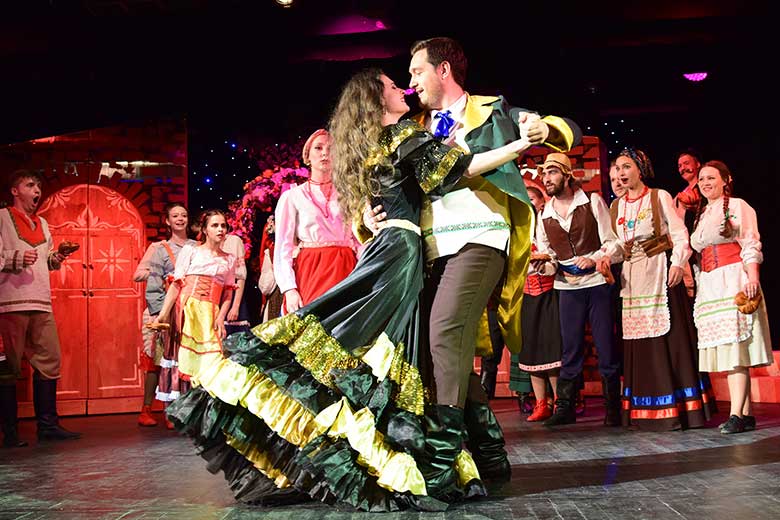From method to legacy: GITIS and the future of theatre studies

With great theatre reformers Meyerhold and Grotowski among its graduates, the pioneering Russian Institute of Theatre Arts is building on its past to raise its profile around the world
There can be few drama schools worldwide that share the colourful history of the Russian Institute of Theatre Arts (GITIS), the largest and oldest arts school in Russia. The Moscow-based institute’s original patron was a member of the Romanov dynasty that was overthrown by the Bolsheviks in the revolution. It opened its doors in 1878, beginning life as a free arts school before welcoming drama students five years later.
Perhaps the most notable personality in GITIS’ history is Konstantin Stanislavski, an actor and director most famous for directing Chekhov plays and his “method” – a system of techniques designed to enable actors to create more believable characters and fully put themselves in the characters’ shoes. “Tradition isn’t everything, of course, but the importance of it to GITIS is clear,” says GITIS rector Grigory Zaslavsky. “It can be calculated in the list of graduates who continue their work as [its] teachers. This is the tradition.” For example, a number of Russia’s most popular theatre and film actors are students of one of GITIS’ oldest masters, Leonid Heifetz, who is now 85 years old. Heifetz was a disciple of Maria Knebel, herself a student of Stanislavski. Opera reformer Boris Pokrovsky is another celebrated alumnus, whose students now appear in performances in illustrious venues from the Bolshoi Theatre to the Royal Opera House in Madrid.
One key moment in the school’s history, Zaslavsky cites, was when Vladimir Nemirovich-Danchenko, a tutor in the drama department, welcomed a number of new students onto his course and wanted to find a teacher who could “create a theatre worthy of these great new actors”. In Nemirovich-Danchenko’s opinion, performers tended to act too grandiosely: their characters and dialogues were too laboured. Stanislavski agreed, and a momentous 18-hour meeting in the Slavyansky Bazar restaurant led to them creating leading company the Moscow Art Theatre in 1898. Another of his students, Vsevolod Meyerhold, established GITIS’ directing faculty, realising that such directing techniques needed to be taught. Today, GITIS teaches more than 1,500 students in a range of art forms including design, ballet, musical theatre, theatre management and production.
GITIS is also known for its agenda for social change. Meyerhold was behind the acceptance of foreign students in the school from the 1930s onwards, and after the October Revolution of 1917, it was the only drama education establishment in Russia that would accept students regardless of their birthplace or social status. It continues to be as inclusive as possible, and in the past 17 years has organised 276 international events welcoming theatres and students from Greece, Israel, China, Spain, Serbia, Estonia, the UK and former Soviet countries. “In the last three years we have been very active in attracting foreign students,” notes Zaslavsky. “Our summer and winter schools, which we hold in cooperation with East 15 Acting School [in London] and the Beijing Central Academy of Drama, regularly bring us applicants who want full-time training. We held a GITIS school in Paris in November 2019, and in December we opened two exhibitions and gave a concert in Barcelona.”

Partnerships with drama schools across the world are increasing GITIS’ international profile, part of a wider effort by GITIS to become more recognisable on the global higher education stage and attract even more international talent. That said, the institute’s standing is already recognised by its peers at world-famous companies such as La Scala in Milan, the Metropolitan Opera House in New York and the English National Opera, all of whom invite its graduates to take part in productions.
Summer and winter schools in Moscow bring in international students from institutions such as the Athens Conservatory and Estonian Academy of Music and Drama, while an annual international festival showcases the work of final-year acting students. There’s also an international festival of stage fencing called the Silver Sword, and an international student conference for theatre historians and researchers.
But while GITIS’ global visibility is important to its growth – with many graduates now laureates of festivals and programmes in other countries – Zaslavsky believes that the school also has much to offer for those who want to learn from Russia’s own rich history in theatre and the arts. “We are interested in the experience of, say, the production departments of British theatre academies and looking for exchange programmes for training in new, fashionable approaches,” he says. “But we understand, without false self-confidence, that Moscow and GITIS can offer, perhaps, even more interesting things, taking into account the diversity of our faculties and programmes.”
As part of GITIS’ ethos of continuous improvement and dedication to lifelong learning, its graduates often return to assist teachers or lead independent workshops. “A few years ago, we launched an experimental course for directors and artists of puppet theatre, which obviously should be taught together, but in Russia they have studied separately,” says Zaslavsky, referring to the school’s philosophy that actors and directors should always be taught alongside one another. “We’ve also started training artist-technologists and opened a master’s programme for playwrights, but the main thing is that we understand how rapidly the times are changing and what new competencies are needed for producers and actors.”
There are some ambitious projects in the pipeline, too. From February 2020, at the initiative of Bulgaria’s Krastyo Sarafov National Academy for Theatre and Film Arts, GITIS will be part of the Rhombus project, where four theatre schools rehearse the same scene from The Inspector General by Nikolai Gogol, changing around students, directors and masters. Also in 2020 it will take part in an international project in Barcelona’s National Theatre of Catalonia, before it publishes a book of contemporary drama plays in Catalan in 2021.
“The results of our training are known today to professionals all over the world. Of course, we are proud that more than 100 years ago, GITIS began to give actors higher education for the first time in Russia, and later produced the great theatre reformers such as Vsevolod Meyerhold and Jerzy Grotowski, and outstanding directors in Eimuntas Nekrošius, Anatoly Vasiliev and Rimas Tuminas,” says Zaslavsky. “But even today, our graduates win prizes at prestigious international festivals, such as Samal Yeslyamova, who won the best actress award at the 2018 Cannes Film Festival.”
Maintaining a link between GITIS’ history of innovation and its future plans is likely to boost its reputation in years to come.
Find out more about GITIS.
